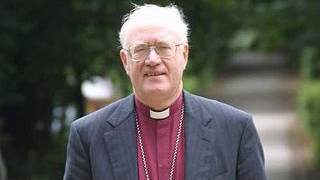Lord Carey's support for assisted suicide disappointing

Last week Lord Carey, the former Archbishop of Canterbury, announced that he has changed his mind on assisted suicide and says he will now support Lord Falconer’s Assisted Dying Bill.
Writing in the Daily Mail, Lord Carey claimed that “it would not be anti-Christian” to support assisted suicide, and that his view had changed as a result of witnessing the case of locked-in-syndrome sufferer, Tony Nicklinson.
However, Lord Falconer's Bill seeks to legalise assisted suicide for patients with less than six months to live. Therefore, it would not have applied to Tony Nicklinson since he was not 'terminally ill' - and Lord Carey himself said that it would be "outrageous if [the Bill] were extended beyond the terminally ill to…the disabled.”
Strong opposition
Unsurprisingly, Lord Carey's article has been critiqued by a number of church leaders and others.
Writing in the Telegraph, Bishop Michael Nazir-Ali underlines that the provision of assisted suicide is not compatible with Biblical teaching, and calls for better, accessible, quality hospice care across the country.
He said: "...let’s not forget Christian teaching on the value of the human person, the duty of care and the prohibition on killing, especially the elderly. It is true, of course, that “thou shalt not kill” does not mean officiously keeping people alive at all costs. Patients can refuse treatment and doctors can withdraw it if it is ineffective, unduly intrusive or unbearably painful. But the all-important word in these cases is “intention”. What is intended: relief of pain, or the death of a patient?
"I continue to call Lord Carey a friend and I hope he will continue to see me as a friend too, but for the sake of the weakest in our society, we cannot allow the announcement of his support for Lord Falconer’s Bill to go unchallenged," he said.
"I yield to no one in my respect for Lord Carey and for the good things he has said and done, but I am simply amazed at his arguments (or lack of them) in support of Lord Falconer’s Assisted Dying Bill for the terminally ill. Lord Carey says that he has changed his mind after encountering the cases of Tony Nicklinson and Paul Lamb, who had severe paralysis but were not terminally ill. In what way do these cases support a Bill specifically for those with a life expectancy of six months or less?"
As reported by the Times, the Archbishop of Canterbury, Justin Welby also outlined how assisted suicide is not consistent with the teachings of the Bible, saying that its legalisation would “leave a ‘sword of Damocles’ hanging over the heads of “every vulnerable, terminally-ill person in the country.”
In his blog, Dr Peter Saunders of Christian Medical Fellowship, said: "What I find most astounding about Carey’s article is the almost complete lack of any theological framework for his argument. There is a vague reference to Christian principles of ‘open-hearted benevolence’ and ‘compassion’ and one mention (above) of Jesus.
"Carey has instead produced a piece that is high on emotion but weak on argument that capitulates to the spirit of the age; that enthrones personal autonomy above public safety; that sees no meaning or purpose in suffering; that appears profoundly naïve about the abuse of elderly and disabled people; that looks forward to no future beyond the grave and that could have been written by a member of the national secular society, British humanist association or voluntary euthanasia society."
Watch Bishop Michael Nazir-Ali respond to the comments on Sunday Morning Live here >
Listen to Dr Peter Saunders respond to the comments on BBC Radio 5 Live here >
